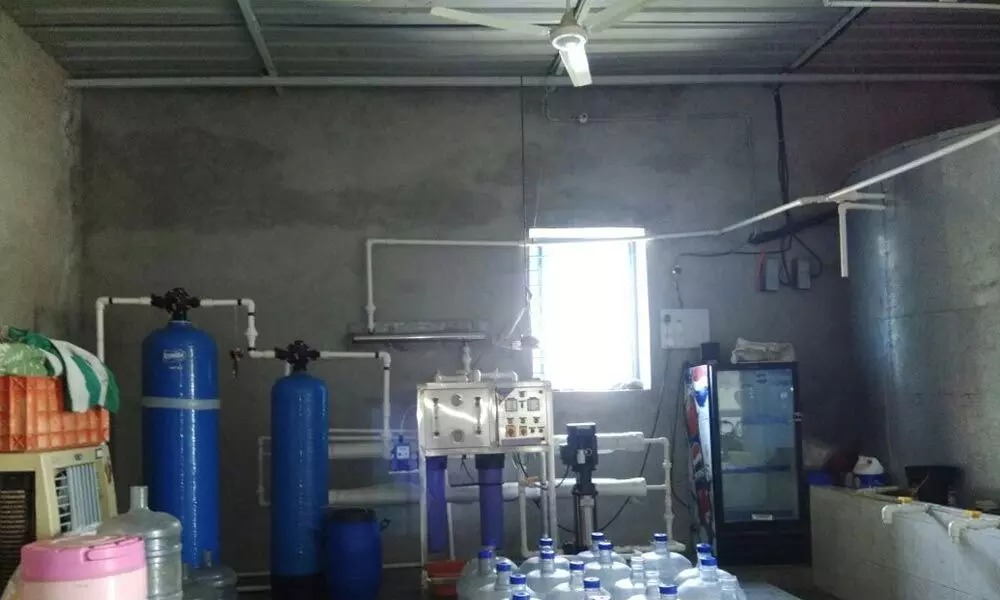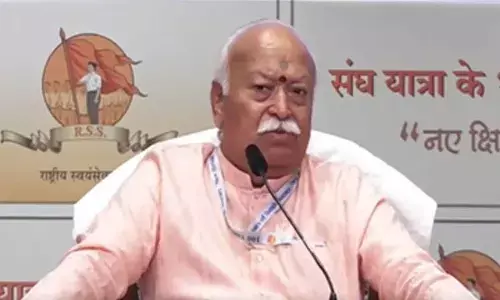Kakinada: RO water found to be unhealthy

Kakinada: Central government will issue guidelines for the closure of Reverse Osmosis (RO) plants soon across the country as the water processed in these plants is found deficient in essential minerals needed for the body and also causing health hazards.
The drinking water supplied by municipalities, particularly East and West Godavari districts from canals of River Godavari, contains rich minerals and doesn't cause any harm to humans or cattle. According to experts, many of the minerals which will help the body, are being eliminated in RO plants which make the water 'cleaned' thus not advisable for drinking. The National Institute of Hydrology (NIH) scientists submitted a report to National Green Tribunal (NGT), explaining the disadvantages of RO plants and harm it causes to humans.
"There are many minerals in groundwater. But, due to the process of filtering the water, some of the minerals vanish. Due to the RO plants, the wastage of water is high as for each one litre of purified water, seven litre is turned into waste water in RO plants. The waste water is not useful for even growing plants. The corporate companies are adding the minerals in ground water and selling it at high prices. But in local RO plants, minerals are not added," said T Vijaya Kumar, a scientist of NIH at Kakinada.
Dr Y R Satyaji Rao, head of the hydrology, NIH, told The Hans India that RO plants are not safe for the health of people as drinking RO water may cause many health problems. So the people should give preference to only river water as it has many mineral which ensure good health to people as well as cattle.
He said that the drawback of RO is that it alters the taste of water by reducing total dissolved solids (TDS) and essential minerals besides reducing the calcium and magnesium levels.
"RO generates lot of waste water which can be collected and used for plants, gardening, non-soap washing such as floor cleaning , car washing, etc.," Satyaji Rao said.
According to him, the principal constituents of TDS are usually calcium, magnesium, sodium, potassium, carbonate, bicarbonate, chloride, sulphate, silica and nitrate. But BIS (Bureau of Indian Standards) prescribed the acceptable limit of TDS as 500 mg and maximum permissible limit as 2,000 mg in absence of an alternative source for drinking purpose.
Calcium and magnesium are essential minerals supplemented through drinking water. He said that domestic water purifiers available in the market usually use chemical disinfection, ultraviolet disinfection, cartridge filtration RO and a combination of these technologies .
There is much confusion about these filters and most often the general public is misguided by the vendor claims. Moderate to high TDS in water not only changes the taste of water but also poses a lot of health hazards, Satyaji Rao says.
The National Green Tribunal (NGT) on May 28, 2019, instructed the Union ministry of environment, forest and climate change (MoEF and CC) to notify prohibiting the use of drinking water processed through RO systems in areas where the amount of TDS was less than 500 mg. The BIS has laid down the standard specifications for drinking water.
In order to enable the users exercise their discretion towards water quality criteria, the maximum permissible limit has been prescribed especially where no alternative source are available.
Satyaji Rao said that RO membrane has a pore size range of 0.0001-0.001 mm that allows only water to pass thorough it leaving behind all the harmful chemical, dissolved salts and microbes suspended in water. Ultra filtration (UF) membrane acts as physical barrier to all colloidal impurities including most pathogenic organisms and turbidity, but fail to remove the dissolved solids and slats.










